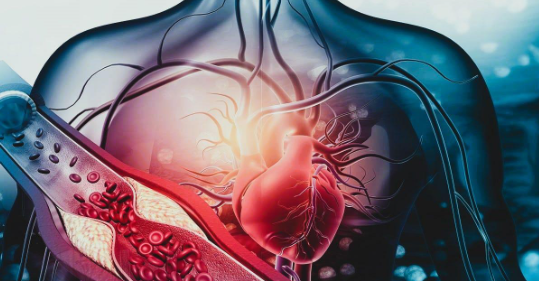
- Thrombocytopenia Syndrome (TTS) is a rare but serious medical condition in which blood clots (thrombosis) form while the platelet count (thrombocytopenia) decreases.
- This can lead to clot formation in unusual locations, affecting the brain, lungs, abdomen, arteries, and other organs.
|
(Vaccine-Induced Immune Thrombotic Thrombocytopenia - VITT)
|
How Does TTS Occur?
- Normally, platelets help in blood clotting to stop bleeding.
- In TTS, the immune system mistakenly attacks platelets, reducing their number while also activating the clotting process.
- This results in low platelet count but excessive clot formation in vital organs.
Common Symptoms
TTS symptoms typically appear 4-30 days after vaccination.
- General Symptoms:
- Persistent and severe headache
- Blurred or double vision
- Unusual bruising or tiny red/purple spots on the skin (petechiae)
- Severe abdominal pain
- Chest pain and difficulty breathing
- Swelling and pain in the legs (Deep Vein Thrombosis - DVT)
- Severe Symptoms:
- Blood clot in the brain (Cerebral Venous Sinus Thrombosis - CVST), leading to stroke.
- Blood clot in the lungs (Pulmonary Embolism), causing difficulty in breathing.
- Blood clot in abdominal arteries, leading to severe intestinal problems.
Organs Affected by TTS
|
Organ/System
|
Potential Complication
|
|
Brain
|
Cerebral Venous Sinus Thrombosis (CVST), leading to stroke.
|
|
Lungs
|
Pulmonary Embolism, causing breathing difficulties.
|
|
Arteries
|
Blood circulation blockage, leading to organ damage.
|
|
Legs
|
Deep Vein Thrombosis (DVT), causing swelling and pain.
|
|
Abdomen/Intestines
|
Blood clot in the digestive tract, causing severe pain.
|
Causes of TTS
Vaccine-Induced Immune Thrombotic Thrombocytopenia (VITT)
- Some cases of TTS have been linked to COVID-19 vaccines, especially AstraZeneca (Covishield) and Johnson & Johnson (J&J), which are adenovirus-based vaccines.
- The vaccine can trigger an abnormal immune response against Platelet Factor 4 (PF4), leading to excessive clotting while lowering platelet levels.
Other Causes
- Heparin-Induced Thrombocytopenia (HIT): A rare side effect in some patients using Heparin (a blood thinner).
- Autoimmune Disorders: Conditions like Antiphospholipid Syndrome can increase clotting risk.
- Severe Infections: Certain viral or bacterial infections can also disrupt platelet function.
Diagnosis and Tests
- If a person develops symptoms of TTS, blood tests and imaging are conducted for diagnosis:
- Platelet Count Test: Determines if the platelet count is abnormally low.
- D-Dimer Test: Measures blood clot formation activity.
- Anti-PF4 Antibody Test: Identifies abnormal immune response against platelets.
- Imaging Tests: MRI or CT scans detect blood clots in the brain, lungs, or other organs.
Treatment
- TTS can be treated effectively if detected early.
Intravenous Immunoglobulin (IVIG):
- Helps regulate the immune response and protect platelets.
Anticoagulants (Blood Thinners):
- Heparin should NOT be used, as it can worsen the condition.
- Alternatives like Fondaparinux, Argatroban, or DOACs (Direct Oral Anticoagulants) are preferred.
Corticosteroids:
- Suppress the immune response and reduce inflammation.



